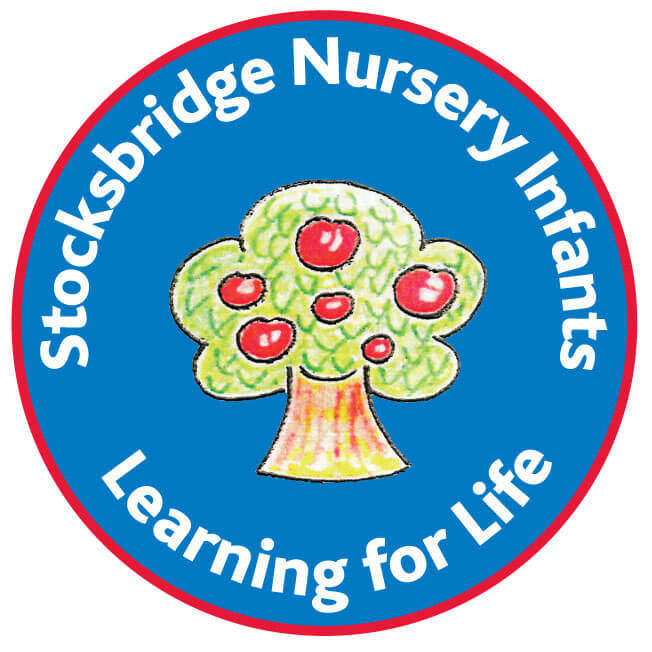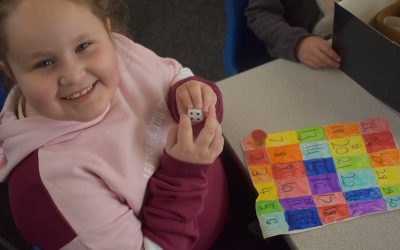‘Learning for Life.’
Mathematics
Intent, Implementation and Impact
KIRFs – Key Instant Recall Facts
At Stocksbridge Nursery Infant School we have a bespoke approach to teaching mathematics using a combination of White Rose, NCTEM and other additional resources to ensure the most effective and carefully selected curriculum suits the individual needs and learning styles of our children.
Intent
We believe that mathematical learning is a journey explored through clarification, practice and application over time. At each stage of learning, children should be able to demonstrate a deep, conceptual understanding of maths and be able to build on this over time. Mathematical thinking is central to how pupils learn mathematics and includes looking for patterns and relationships, making connections, conjecturing, reasoning, and generalising. Alongside this we support our children to develop and use mathematical vocabulary.
We aim to deepen children’s understanding of maths by segmenting learning into three distinct areas:
I know what… (components) – facts (declarative knowledge)
I know how… (components) – methods (procedural knowledge)
I know when… (composite) – strategies (conditional knowledge)
This ‘mastery approach’ to teaching maths is the underlying principle of ours.
Our school uses White Rose to drive the teaching of maths. In addition to this we are supported by:
- EYFS Statutory Framework
- KS1 National Curriculum
- DfE Ready to Progress criteria
- DfE Research and Analysis. Coordinating mathematical success: the mathematics subject report
Alongside the White Rose overview, our curriculum and planning aims to embed the ‘5 Big Ideas of Mastery:’
- Mathematical Thinking
- Fluency
- Variation
- Representation and Structure
- Coherence
Implementation
The specific curriculum overviews provide an amalgamation of White Rose, NCTEM, Nrich, the Early Years Statutory Framework and Ready to Progress materials. One scheme alone would not cater for all learning, so we’ve combined a range to accommodate all needs and learning styles.
The learning end points signify the learning we want children to have by the end of the block. These align with either the Early Years Statutory Framework or the Ready to Progress materials.
Children learn Key Instant Recall Facts (KIRFS) each term to support their declarative knowledge.
Fluency Bee gives all children access to an additional fifteen minutes of daily maths, separate to the main lesson, where children can deepen their mathematical fluency. This declarative knowledge is one of the knowledge components needed for deeper understanding.
We develop children’s procedural and conditional knowledge by implementing The NCTEM 5 Big Ideas. Stocksbridge Nursery Infant School is part of the South Yorkshire Maths Hub which aims to embed the 5 Big Ideas into classroom practice.
We use Nrich to support children to apply their learning to a range of problem questions. The NCTEM key questions can be repeated in any block or unit such as true or false, spot the mistake, do then explain, what do you notice etc…. however, examples specific to this particular block are focused on under each heading.
Impact
Teachers review pupils’ work on a daily basis to identify any pupils who need same day intervention and to inform planning.
Assessments are used throughout the lesson, week, term and year to inform teacher assessment, to identify gaps and content to be covered in maths catch up lessons.
Assessment is against the Ready to Progress statements or EYFS assessment framework. The curriculum is adapted based on outcome of these assessments to ensure all children are ‘ready to progress’ or achieve “Early Learning Goal.”
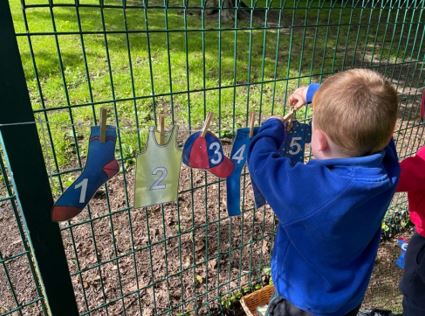
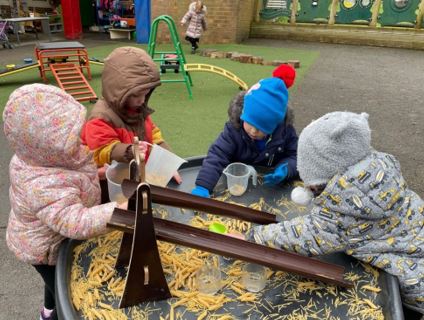
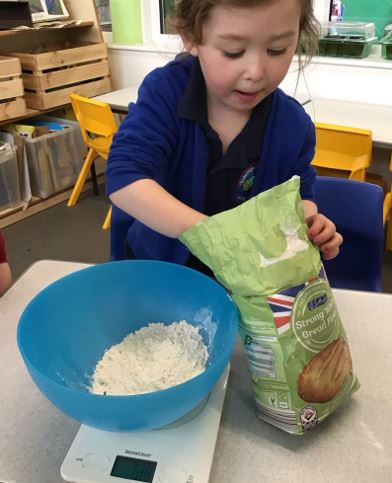
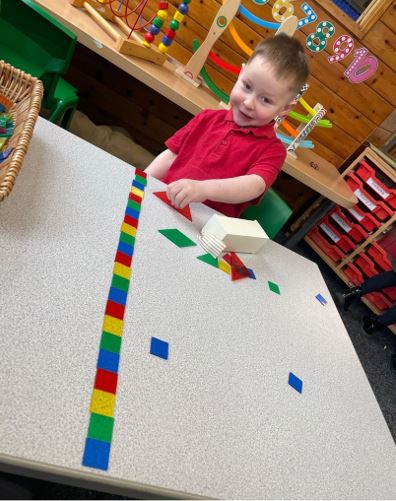

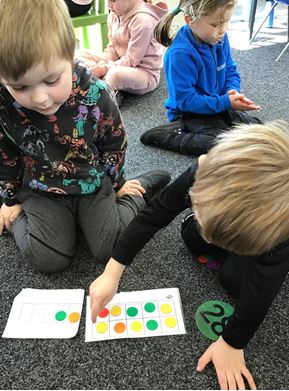
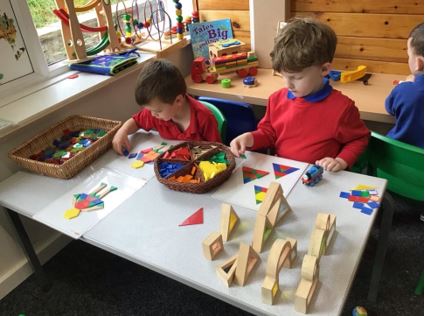
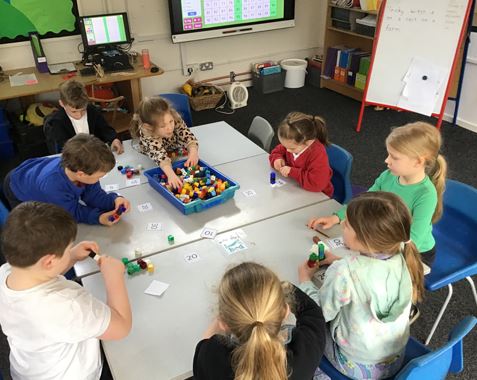
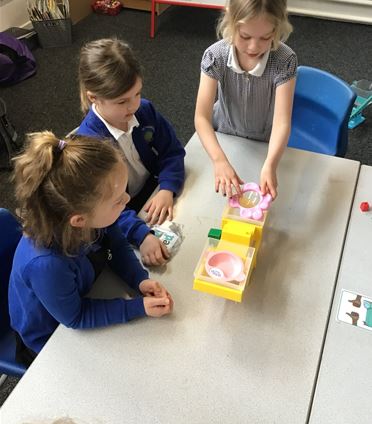
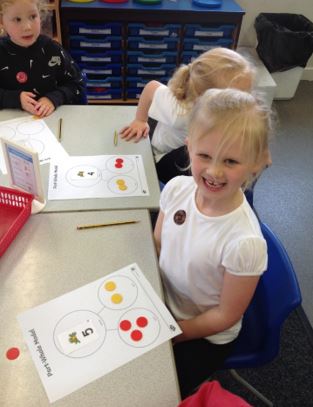
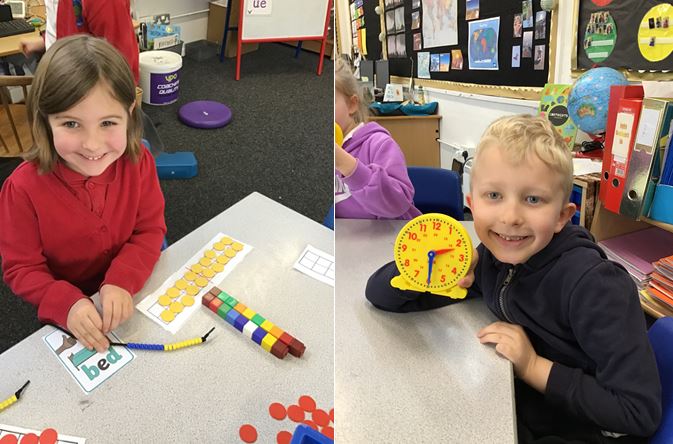
Blog
Designing maths games
We love to bring maths to life and one of the ways that these children chose to do this was through designing and making a game. Some children chose to make a roll and race game, others chose domino or skittle style game. All games had a maths element. We really...
